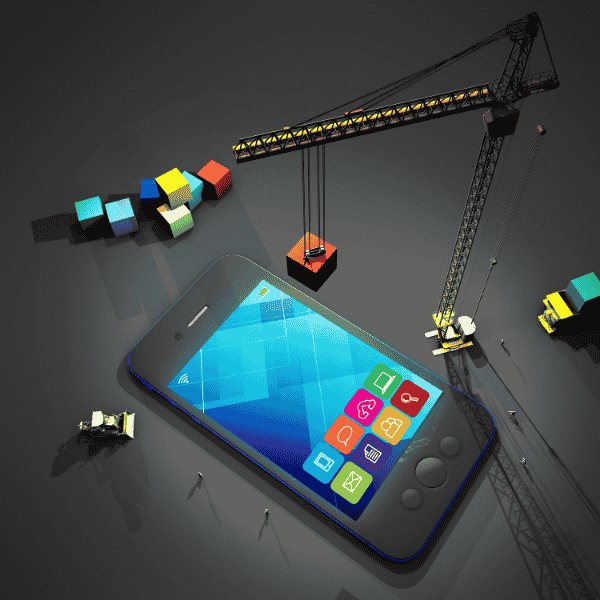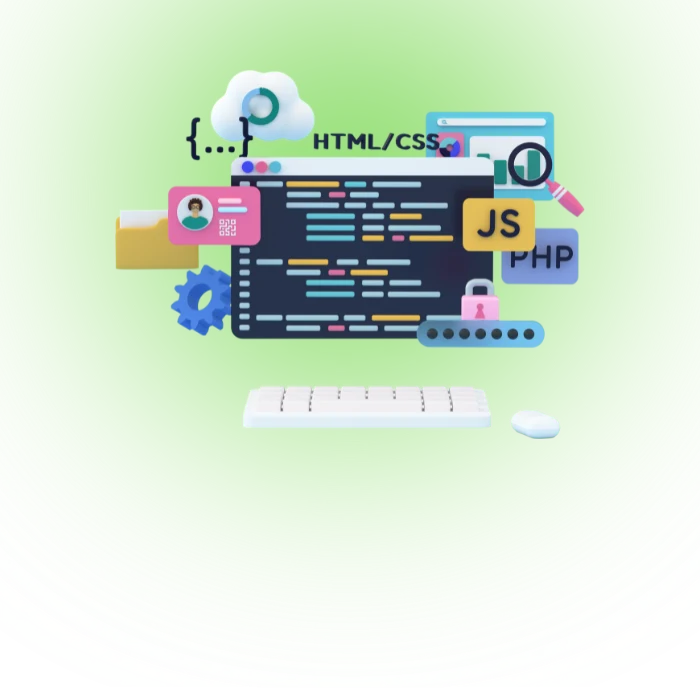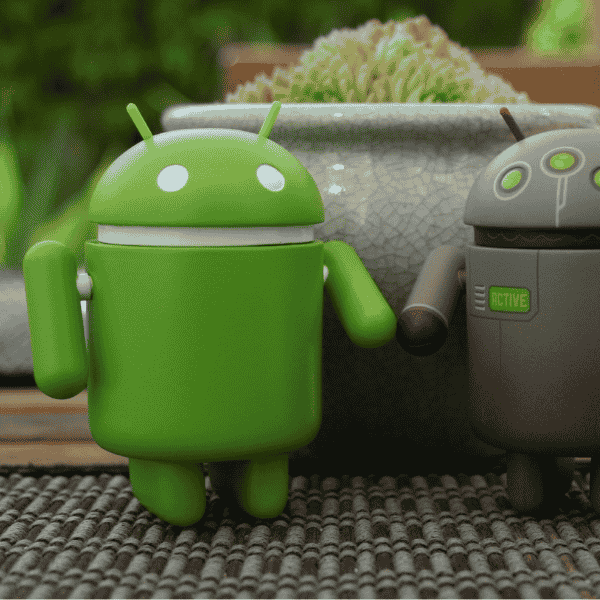What Are the Most Impactful Mobile App Development Trends in 2025
Teams see the biggest lift where phones do more work locally, networks deliver real-time flows, and interfaces adapt to new device shapes. Choices now pivot on pairing on-device AI with cloud sync, then fitting features to folds, wearables, and web capabilities that ship fast without lock-in. Evidence matters more than slogans.
How AI Personalization Is Changing User Experiences
Phones run smaller models for intent, summarization, and privacy-sensitive ranking. Gemini Nano on Android ships inside AICore for low-latency, on-device tasks developers can call into, which removes round-trip lag for core moments like text suggestions or safety filters. Apple’s Private Cloud Compute handles heavier work while keeping data out of long-term storage for sensitive flows. We treat it as a split brain: quick local, bigger cloud, both guarded.
one retail app we tuned pushed recommendations on-device during bad signal in a basement store; conversions ticked up in quiet ways, not flashy, felt good.
Why 5G Networks Will Revolutionize App Performance
Real improvement shows up where latency and burst speed change the product, not just the speed test. Ericsson projects roughly one-third of all mobile subscriptions at 5G by end-2025, with strong mid-band coverage across many regions. That reach enables moments like multi-party camera sessions and richer telemetry in field tools without stalling. Feature gates still need graceful fallbacks for LTE regions, or support teams get heat fast.
The Rise of Augmented Reality and Virtual Reality Apps
AR on phones keeps gaining steady capability. ARCore adds APIs like Flash Mode to stabilize perception in dark scenes, while ARKit continues to expand object tracking, higher-res capture, and location anchors that pin content to real places. These shifts help training guides, showroom previews, and quick sizing tools inside normal apps, not only headset projects. Keep budgets realistic; prototypes fool teams about scaling work.
Impact of Foldable Devices on App Design and Usability
Foldables reward layouts that reflow without awkward jumps. Multi-pane patterns need thoughtful state handoff between compact and expanded modes, along with drag targets that don’t fight thumbs near the hinge. Gestures should avoid split seams to reduce mis-hits. Testing on emulators misses posture quirks; real hardware still finds the papercuts many hours sooner.
How Can Businesses Leverage AI and Machine Learning in Mobile Apps
Value lands when AI handles clear, bounded tasks tied to a metric you watch weekly. On-device models trim latency and cost, cloud models handle heavier reasoning with privacy guardrails. Product teams must plan fallback text and empty states so AI never leaves the screen awkward or blank. Logs should separate model errors from network or UX misses.
Benefits of Predictive Analytics for User Engagement
Predictive scoring helps decide which nudge to show and when, using simple features like last session length, feature used, and local time window. Phones can compute a next-best action on device, then fetch content if confidence clears a threshold. That pattern cut our ping-pong between screens in a learning app and reduced churn during week two.
Smart Chatbots and Voice Assistants for Better Support
Voice shortcuts and small chat flows assist with lookups, returns, or basic triage. Android’s Gemini stack now offers on-device inference for sensitive snippets, while server calls can step in for heavier intent parsing. Guardrails matter: always provide a way to reach human help, and log top failed intents weekly so scripts improve rather than drift stale.
AI-Driven Recommendations That Boost Retention
Ranking feeds or next screens works best when feedback is fast and visible. Fine-tune not just for click, but for completion or solved outcome. Privacy notes should be plain; people trust features that explain why a suggestion appeared in natural words, not a long policy link.
Why Is 5G Integration Essential for Mobile App Success
Teams should use 5G where it unlocks product ideas users feel, like live co-creation, low-delay telehealth, or sensor swarms for logistics. Ericsson’s 2025 report points to broad 5G share and strong mid-band coverage, which means these ideas are viable in many markets now. Design needs adaptive bitrate, jitter handling, and a sane offline lane.
Faster Data Speeds Enabling Real-Time Features
Low-latency streams unlock features such as shared cursors on whiteboards, synchronized camera feeds for inspections, and haptics that align with remote events. Backoff strategies should step down gracefully to snapshots or queued uploads when radio conditions dip, or users feel the app “breathe” badly during commutes.
Use Cases Where 5G Transforms App Capabilities
Field audits can push annotated 4K clips with timestamps; sports apps can render multi-angle replays instantly; health tools can sync dense sensor sets during sessions instead of hours later. Cost needs watching, since radio usage impacts battery and data bills; compression choices pay back quickly in happy reviews.
What Are the Emerging UI Trends Enhancing App Interaction
Interfaces trend toward motion that conveys cause and effect, pared navigation with visible state, and gestures that never hide critical actions. Rounded corners alone don’t fix trust; clarity does. Design systems need tokens that scale across foldables and watches, so teams stop re-inventing paddings every sprint.
Motion Design and Animated Interfaces That Engage Users
Motion earns its keep when it teaches structure. Small transitions for sorting, filtering, and cross-screen state transfer reduce cognitive load. Users read intent from easing curves and timing that match content weight. Overdo it and the app feels like a demo reel; score each animation against a task, keep the rest calm.
Simplifying Navigation for Seamless Mobile Experiences
Navigation shines when users never ask “where did that go.” Top-level tabs hold stable categories, search stays reachable, and empty states push the next action clearly. Thumb-reach maps inform icon placement. Even tiny fixes like larger hit targets on secondary actions drop error taps and soothe support queues.
How Are Wearable Devices Influencing Mobile App Development
Wearables extend moments rather than replace phones. Quick glances, brief confirmations, and background sensing thrive on watch faces, tiles, and complications. Android’s Wear OS pushes tiles for glanceable actions; Apple’s watchOS 11 adds health and training load insights that pair well with coaching nudge flows in companion apps.
Developing Apps for Smartwatches and Fitness Trackers
Companions should sync in bursts, not streams. Tiles offer fast state and one-tap actions on Wear OS, which works nicely for timers, lists, and quick starts. watchOS surfaces Vitals and training load, so fitness apps can reflect recovery ideas without opening the phone. Keep battery in mind; background greed gets punished in reviews.
Integrating Health and Activity Monitoring Features
Consent flows must be clear, with per-metric toggles and a way to erase history. Health goals should adapt to noisy data days, not scold. Sync queues should hold when radios sleep and flush when the phone wakes, or users see stale graphs and stop trusting the trend lines.
What Is the Role of Cloud Computing in Modern Mobile Apps
Cloud keeps states consistent and heavy work off devices, while on-device AI covers quick inference. Storage, queues, and pub/sub patterns smooth bursty usage after a splashy campaign. Observability with clear IDs per user journey helps support teams replay issues without guesswork.
Benefits of Cloud Scalability and Data Storage
Multi-region storage shortens latency across continents. Feature flags let you ship quietly to five percent, gather errors, then roll forward safely. Care with personally identifiable data pays dividends later when compliance audits arrive. Teams that tag events with version numbers debug upgrades quickly.
Enhancing Mobile Apps with IoT and AI Cloud Services
Sensors flood data, so bucketing and summarizing at the edge saves bills. Cloud inference fits batch jobs like churn risk and periodic similarity clusters; devices handle last-mile ranking where privacy matters most. That blend keeps performance steady even during weekday peaks.
How Does Low-Code and No-Code Development Accelerate Innovation
Visual tooling helps non-specialists assemble CRUD flows, forms, and dashboards, then connect to APIs for domain logic. Startups use these stacks to validate service ideas before deeper native builds. Lock-in risk remains, so export paths and guardrails should be part of the plan, not an afterthought.
Tools Empowering Faster App Building Without Coding
Platforms like Power Apps, AppSheet, or FlutterFlow cover simple workflows, admin surfaces, and internal tools. Validation teams can stand up a customer portal in days, then learn where native polish truly matters. Extension points become critical once requirements grow teeth.
Use Cases Where Low-Code Boosts Startup Agility
Pilot portals, partner onboarding, or quotes calculators shine here. Later, moving hot paths into native code reduces latency and keeps fees under control. Clear seams between low-code and custom modules keep future rewrites sane rather than heroic.
Why Are On-Demand Apps Growing Rapidly in Popularity
Demand spikes meet convenience when location, payments, and status updates work in tight loops. People expect live ETAs and reliable escalations. Operations design matters as much as code; without strong support playbooks, even a polished app feels brittle during peak hours.
Delivering Instant Services and Real-Time Updates
Live location with small payloads, retry rules that don’t spam, and push notifications that respect quiet hours build trust. Drop a fallback SMS for critical steps in regions where push delivery lags on certain devices.
Business Models Driving On-Demand App Success
Margin lives in batching, route density, and churn controls. Coupons attract, but predictably good service keeps people. Simple refunds resolve tension quickly; long waits feed bad ratings that don’t wash out easy.
How Important Is Mobile-First Design for User Retention
Phone screens remain the primary touchpoint even when a service has a web surface. Decisions about spacing, font size, and thumb reach drive retention more than most teams admit. Design debt compounds when ignored; short sprints of cleanup pay back quickly.
Key Features for Thumb-Friendly Navigation
Primary actions sit within natural reach zones, with destructive actions pulled away from common swipe paths. Gestures include visible hints, not hidden magic. Form fields announce format expectations before errors shout at the user.
Optimizing Forms and Click-To-Call Buttons for Mobile Users
Short forms with generous spacing, input masks, and clear defaults reduce abandonment. Click-to-call should present local numbers and working hours. Follow ups via SMS keep momentum when Wi-Fi drops right before checkout.
What Are the Best Practices for Implementing Progressive Web Apps
PWAs provide installable experiences with offline support and push, which now include iOS when a user adds the app to the Home Screen. Google’s checklist remains a solid bar for installability, performance, and reliability. Teams should test push permissions, cache versioning, and fallback routing thoroughly.
Combining Website Speed with Native App Experience
Service workers cache critical routes, while web app manifests define icons and display modes. Smooth start up and steady frame timing influence engagement as much as features. Teams pick meaningful skeleton screens rather than generic spinners; people notice the difference.
Offline Functionality and Push Notifications Benefits
Offline flows should let people read prior content, queue actions, and see honest status about pending sync. Web push on iOS requires Home Screen install; communicate that clearly or support gets tickets saying “notifications broken.” Version caches often go stale in the field; write explicit busting rules.
Conclusion
Choose two or three trends that map to a real user moment, then ship a narrow slice. Measure the boring bits like cold-start time and tap errors. Momentum beats big plans that never quite leave staging.
Share one user journey and your current crash or churn graph. We’ll return a short build plan with risks, device targets, and a proof screen you can show next week.
FAQs
What is next big changes in app development?
Next big changes arrive from on-device AI, 5G-ready features, and better AR toolkits. Phones now run compact models for fast tasks while cloud handles heavier reasoning. 5G coverage enables live collaboration and richer media in many regions.
What are the top 5 app development ideas?
Strong ideas include field audits with guided video, hyperlocal delivery with slot batching, coaching apps that adapt plans, maintenance tools with AR overlays, and patient follow-ups with watch nudges.
What is the future of mobile apps?
Future leans toward context-aware helpers with split work across device and cloud. Interfaces will adapt to foldables, watches, and cars without duplicate builds.
Which is best app development framework?
Flutter, React Native, and native stacks each excel for certain needs. Pick based on device features, team skill, and release cadence. Example: choose native where camera pipelines dominate, use cross-platform for form-heavy dashboards. Caveat: budget time for store policies and signing steps.






